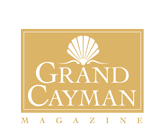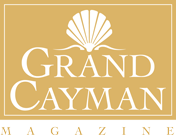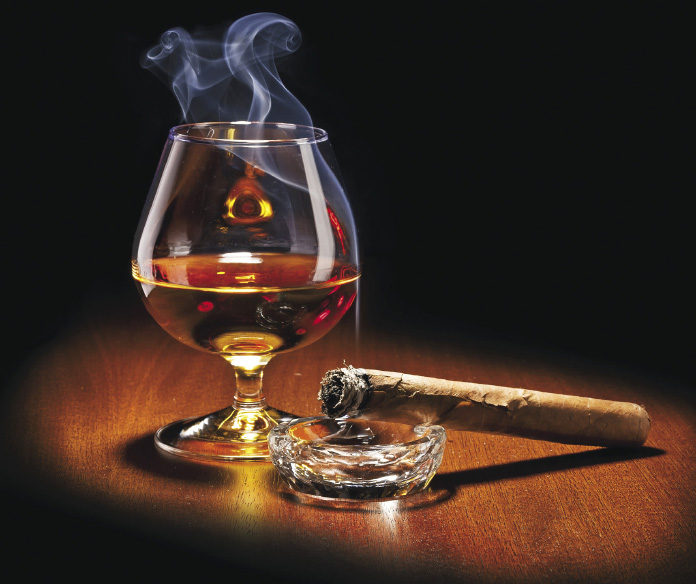 Despite 56 years of American trade sanctions against Cuban products, cigars have always remained one of the country’s leading exports. In the early ’90s, 30 years after the Cuban embargo first went into effect, the country exported 77 million cigars, with a slight steady decline since then attributed mainly to a loss of much of the wrapper crop in hurricanes.
Despite 56 years of American trade sanctions against Cuban products, cigars have always remained one of the country’s leading exports. In the early ’90s, 30 years after the Cuban embargo first went into effect, the country exported 77 million cigars, with a slight steady decline since then attributed mainly to a loss of much of the wrapper crop in hurricanes.
 Now, it seems, cigar-loving travelers won’t have to hide their Cubans in their luggage anymore. Tobacco products from Cuba are among the goods allowed under new trade normalization rules recently announced by President Obama. The exact language of the executive order has yet to be revealed, so let’s wait a bit before we convert one of our closets into a walk- in humidor.
Now, it seems, cigar-loving travelers won’t have to hide their Cubans in their luggage anymore. Tobacco products from Cuba are among the goods allowed under new trade normalization rules recently announced by President Obama. The exact language of the executive order has yet to be revealed, so let’s wait a bit before we convert one of our closets into a walk- in humidor.
The new rules could take some of the fun out of Cuban cigars. For U.S. travelers, it’s always been sort of a “hide and seek” game between them and custom officials. Amateur smugglers would hide bundles of Monte Cristos or Uppmans between dirty laundry or inside extra packed shoes, hoping that border officials wouldn’t find them. Then there’s the “prove me wrong” strategy of removing the cigar band and having them clearly visible in your shirt pocket.
“Oh no, officer; these are from Honduras.”
Much as a foam-drenched mug of beer is a symbol of Germany or a pizza is the classic representation of Italy, the cigar is the trademark of Cuba.
Most cigar connoisseurs will agree that “Cubans” are the best – most of the time. Any uncertainty comes into play because of the popularity of the Cuban cigars; a demand for the best stogies has created a flood of counterfeit smokes.
It’s been said that nearly 90 percent of the “Cuban” cigars found in hidden shelves of American tobacco stores are forgeries. Cohiba Esplendidos, Hoyo de Monterreys, and Partagas seem to be favorite targets for the imposter “torcedores” (cigar rollers). In fact, the fake cigar business in Cuba is bigger that the sales of real ones.
A genuine government-approved box of Cohibas can cost between $500 and $600 in Havana, but just stand on a street corner and look like a gullible gringo and in no time someone will offer you a box for $100 or less. Be warned: you could end up smoking dried banana leaves.
Cuban cigars are rolled from tobacco leaves found throughout the country. The filler, binder, and wrapper may come from different locales on the island, but all authentic cigar production in Cuba is controlled by the Cuban government, and each brand may be rolled in several different factories.
Cuban cigar rollers are thought to be the most-skilled rollers in the world. They are highly respected in Cuban society, and the best of the best are allowed to travel worldwide to display their art of hand-rolling cigars.
In the United States, authentic Cuban-made cigars are considered taboo for Americans to purchase and it’s not just because of the embargo. In part, it’s the image of Castro or Che’ Guevera chewing on a super-sized Cohiba.
 Fidel confiscated private property (including tobacco farms) following the revolution, so many former Cuban cigar manufacturers who had owned land in Cuba moved to the Dominican Republic, Honduras, and Nicaragua to continue production.
Fidel confiscated private property (including tobacco farms) following the revolution, so many former Cuban cigar manufacturers who had owned land in Cuba moved to the Dominican Republic, Honduras, and Nicaragua to continue production.
When the production of tobacco grew significantly in these Latin America countries, most former Cuban manufacturers continued to use their known company brand. After the revolution, the government continued production of cigars using the former private company names; as a result, brands like Romeo y Julieta, La Gloria Cubana, Montecristo, and H. Upmann, exist in both Cuba and the Dominican Republic. However, the original Cubans will always be thought of as the best.
What is it that makes a genuine, non-counterfeit Cuban cigar stand out among the rest?
Cuba has been growing tobacco for hundreds of years, beginning first under the rule of King Phillip II in the 1500s. The vast experience that they have in the cigar-making business only serves to enhance their quality product. Cuba also provides the perfect environment and climate for growing tobacco.
 The country’s soil allows the plants to produce very high-quality leaves, and the humidity of the island is perfect for cultivating, drying, and harvesting the plants. The combination of ideal climate and centuries of experience results in what is considered to be the world’s finest cigars. It takes 100 steps to suitably produce a single authentic Cuban cigar, and all factories in Cuba follow a specific design and creation process which is strictly controlled by government inspectors.
The country’s soil allows the plants to produce very high-quality leaves, and the humidity of the island is perfect for cultivating, drying, and harvesting the plants. The combination of ideal climate and centuries of experience results in what is considered to be the world’s finest cigars. It takes 100 steps to suitably produce a single authentic Cuban cigar, and all factories in Cuba follow a specific design and creation process which is strictly controlled by government inspectors.
In the few cigar lounges on Grand Cayman, one can easily spot the cigar aficionado and separate him (or increasingly her) from those who just seek the novelty of smoking a Cuban.
The connoisseur will narrate the quality of his smoke in the same fashion as a wine sommelier would describe a bottle of French cabernet sauvignon or an expensive chardonnay.
“Oh, this Monte Cristo number two is rather citrusy, tangy, and a little tart, but I must admit there is a lingering, pleasant and woody aftertaste.”
The cigar that you like the most is, of course dependant upon your personal taste; however, among those in the know, the overruling choice is the Cuban.
It’s easy to see why these great cigars are so popular worldwide. If you are a stogie buff, you simply must try a Cuban at some point in your cigar-smoking journey!
Local Cigars
By Tad Stoner
Visitors to the Cayman Islands should have no trouble finding an outlet for Cuban – and non-Cuban — cigars, with half-a-dozen shops and cigar bars, and even a couple of online retailers.
The two best known are Havana Club, owned by local businessman Raglan Roper, and La Casa del Habano, Cayman’s exclusive retail franchise, owned by Habanos SA, itself a 50/50 partnership between Havana’s CubaTabaco and Britain’s Imperial Tobacco Group.
Havana Club
1) West Shore Plaza, 508 West Bay Road; phone: 946–0523
2) Regency Court, 672 West Bay Road; phone: 945–5391
Mr. Roper fell in love in the 1980s with most things Cuban, including a wide variety of rums and hundreds of cigar brands. Starting with individual sales to friends and family, at last in 1997 he opened his first Havana Club, and today is on the verge of launching his third store. He also runs Cuban restaurant Havana Vieja.
Havana Club Outlets are in the West Shore Plaza, a distinctive cigar bar in the middle of the parking lot, which hosts Mr. Roper’s exclusive cigar roller, Jesus Lara Perez and in Regency Court, next door to the famous Lone Star Café. By late springtime, after the planned closure of Regency Court, the Caribbean Club will be Mr. Roper’s latest site, although Regency Court may reopen depending upon demand.
At least five brands of cigars – La Habana, Robaina, Montecristo, Cohiba and Partagas – are sold at Havana Club. Within each brand, however, half-a-dozen different sizes and types are available to satisfy a wide variety of choices.
La Casa del Habano
Single outlet at 2 Harbour Drive, George Town; Phone: 946-4666
La Casa del Habano, known to the faithful as “LCDH,” has a single outlet at 2 Harbour Drive in George Town, near the cruise-ship terminal. Featuring both a walk-in humidor and a locked humidor for special customers, LCDH, founded in Cancun, Mexico in 1990, and operating today in 150 countries, offers 33 Habanos brands including its flagship Cohiba.
The Cohiba was created in 1966 for Cuban leader Fidel Castro and made at the secret “El Laguito” factory. Today, the Cohiba – Taino language for the clusters of tobacco leaves that Christopher Columbus saw native Cubans smoking – comes in two distinct lines, made from the five finest Vegas Finas de Primera in the premier tobacco-producing Vuelta Abajo region.
A walk-in humidor rigorously controls the temperature and humidity under which LCDH’s entire cigar selection is displayed. A vendor will introduce clients to the range of products.
The locked humidor is the LCDH “vault,”where clients can store their own cigars in locked security boxes under guaranteed climatic conditions.
Finally, the tasting room is “a private and comfortable environment” where clients can meet, discuss business and indulge in a Habanos.
Churchill’s Cigars
Island Plaza, Cardinal Ave,
George Town; Phone: 945-6141
Owen Roberts International Airport; Phone: 949-7323
Another top-class option for the cigar aficionado is Churchill’s Cigars, in Island Plaza on the George Town waterfront. A cigar-store Indian points the way into the emporium, which offers a selection of Upmann, Romeo y Julieta, Cohiba, Montecristo, Partagas and the Bolivar Belicoso Fino, all displayed in dark, clubby surroundings.
In fact, Churchill’s offers more than 100 cigars, with 20 Cuban brands and more than 50 top-grade non-Cuban brands from the Dominican Republic, Nicaragua and Honduras; these including Davidoff, Arturo Fuente, India Tabac and the Royal Danish, crystal-embedded Swarovski Crystal cigar.
Churchill’s is the only “Official Opus X dealer” in the Western Caribbean. The Opus X was created in the early 1990s, when Carlos Fuente Jr. of Arturo Fuente Cigars – among the Dominican Republic’s top cigar firms – sought to produce wrapper tobacco, using giant tents to protect the crop against the wind. In 1992, he created the first DR wrapper and the first pure Dominican puro, Opus X.
According to Cigar.com, the Opus X “is almost impossible to find … widely considered the best of the best.
“It is full-bodied and the aromas in each size are distinctly different, but the one characteristic each has in common is near-perfect taste and quality.”
So difficult is the Opus X to find, that Cigar.com restricts orders to three per customer, referring greater demand to “a cigar specialist to check availability.”
Online prices range from US$60 for the “Love Affair” to $23 for “Perfection 5.”
Staff at the shop, licensed for liquor sales, will advise clients on best drink pairings for their cigars – bold, older rum for a Montecristo No. 2, cognac for smaller Partagas Shorts, or a single-malt scotch such as Glenmorangie for the Bolivar Belicoso Fino.
Havana House Cuban Cigars & More
Duty Free Mall, Royal Watler Cruise Terminal; Phone: 927-0305
Another outlet for both Cuban and non-Cuban cigars in Cayman is “Havana House Cuban Cigars and More.”
Caymanian owner Jaime Pineda has sold Cuban tobacco products since he founded Havana House Cigars in 2002, offering Cohiba, Monte Cristo, Partagas, Bolivar. Romeo & Juliet, Punch and Hoyo de Monterrey.
Caymanian’s favorite, according to Jaime, appears to be the Havana House’s “smooth Nicaraguan line,” offering exceptional flavor at a reasonable price.
The shop also offers a selection of humidors, lighters, Cuban collectibles, paintings and coffee.
Other reputable outlets also include:
Cigar Retail Shop II
Aall Trust Building, North Church St, George Town; Phone: 946-4688
Cohiba Lounge and Cigar Emporium –
also known as Puro Rey Cigars
Cayman Falls Plaza, Ground Floor, West Bay Road, Seven Mile Beach; Phone: 949-2345
Havana Humidor
Harbour Drive, George Town; Phone: 946-7876
Duty-Free Cuban Cigars
This outlet is among Cayman’s premier online retailers, but does not have a “bricks-and-mortar” location. “Duty-Free Cuban Cigars” sells more than 30 Cuban brands worldwide. U.S. residents, however, are still barred from outright purchase of Cuban products.
Website: www.Cubancigars.com.ky
Email: dfcigars@yahoo.com
Phone: 345-322-0208





















